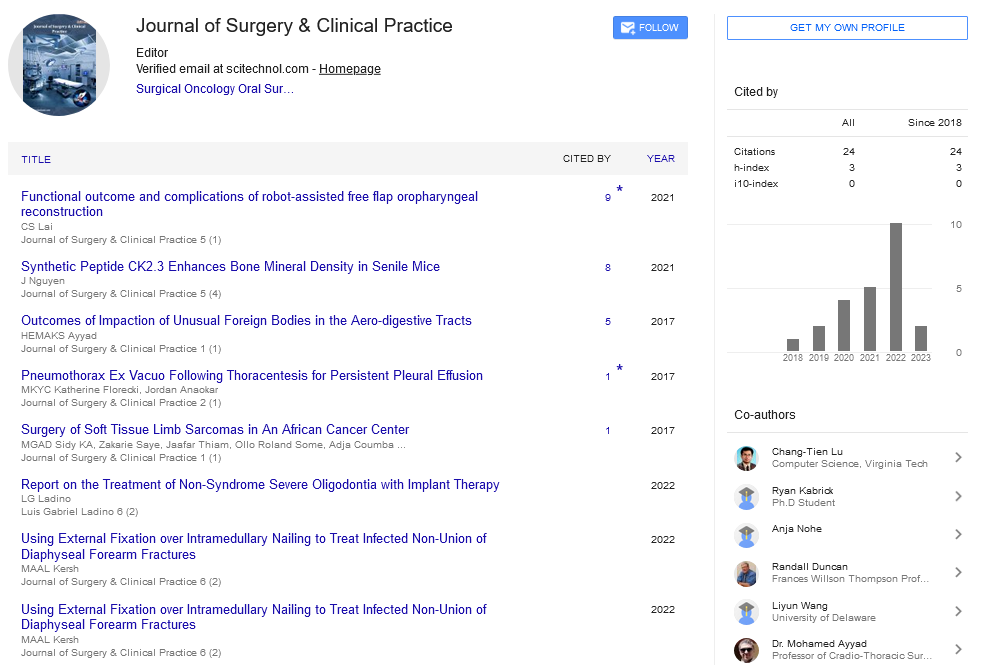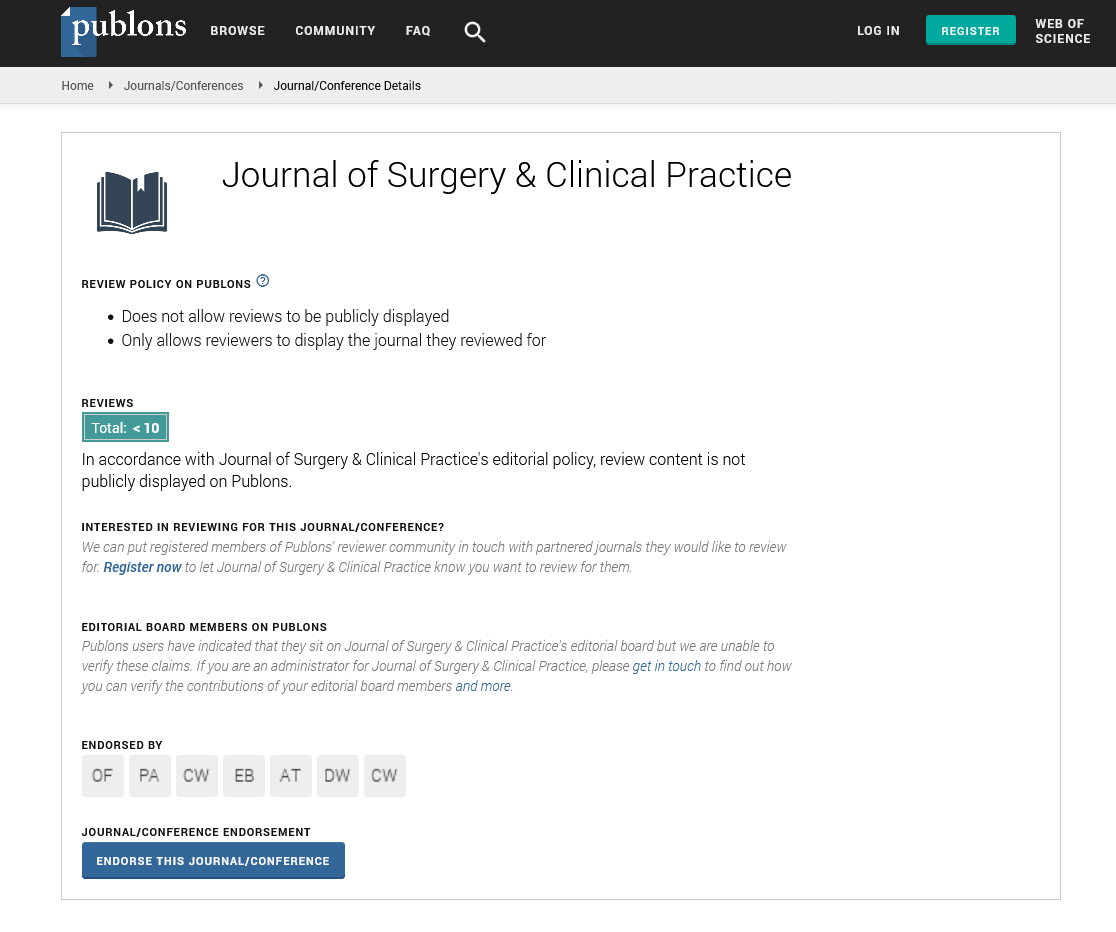Opinion Article, J Surg Clin Prac Vol: 7 Issue: 1
Role of Endocrine Surgery in the Management of Thyroid Disorders
Lauren Chong*
Department of Surgery, Yale School of Medicine, New Haven, United States of America
*Corresponding Author: Lauren Chong
Department of Surgery, Yale School of Medicine, New Haven, United States of America
E-mail: lauren@chong.edu
Received date: 22 February, 2023, Manuscript No. JSCP-23-95363;
Editor assigned date: 27 February, 2023, Pre QC No. JSCP-23-95363(PQ);
Reviewed date: 15 March, 2023, QC No. JSCP-23-95363;
Revised date: 22 March, 2023, Manuscript No: JSCP-23-95363(R);
Published date: 29 March, 2023, DOI: 10.35248/JSCP.23.7.1003374.
Citation: Chong L (2023) Role of Endocrine Surgery in the Management of Thyroid Disorders. J Surg Clin Prac 7:1.
Keywords: Endocrine Surgery
Description
The thyroid gland is a small, butterfly-shaped gland located in the neck that is responsible for producing hormones that help regulate the body's metabolism, heart rate, and other bodily functions. Unfortunately, thyroid disorders are fairly common, affecting millions of people around the world. While medication and other treatments can be effective in managing thyroid disorders, endocrine surgery has emerged as a powerful tool in the fight against these conditions. Endocrine surgery is a specialized field of surgery that deals with the surgical management of disorders affecting the endocrine glands, including the thyroid gland. The goal of endocrine surgery is to remove abnormal or diseased tissue from the gland, preserving as much of the healthy tissue as possible. It is used to treat thyroid disorders which are increased significantly in recent years, and it has become an important option for many patients. One of the most common thyroid disorders treated with endocrine surgery is thyroid cancer. Thyroid cancer occurs when abnormal cells grow and multiply uncontrollably in the thyroid gland. If left untreated, thyroid cancer can spread to other parts of the body, making it difficult to treat. In most cases, the first-line treatment for thyroid cancer is surgery. The goal of surgery is to remove the cancerous tissue, reducing the risk of the cancer spreading to other parts of the body. The type of surgery used to treat thyroid cancer depends on the size and location of the tumor, as well as other factors such as the patient's age and overall health. In some cases, a total thyroidectomy, or the complete removal of the thyroid gland, may be necessary. In other cases, a lobectomy, or removal of part of the thyroid gland, may be sufficient. In either case, the goal of surgery is to remove as much of the cancerous tissue as possible, while preserving the function of the remaining thyroid tissue.
In addition to thyroid cancer, this surgery can also be used to treat other thyroid disorders such as goiter and hyperthyroidism. A goiter is an enlarged thyroid gland, which can cause a variety of symptoms including difficulty breathing and swallowing, and a visible bulge in the neck. In some cases, a goiter can be treated with medication, but in other cases, surgery may be necessary to remove all or part of the thyroid gland. By removing the enlarged tissue, surgery can alleviate the symptoms associated with the goiter and improve quality of life for the patient.
Hyperthyroidism, or overactive thyroid, is another condition that can be treated by this surgery. In cases where medication is not effective in controlling hyperthyroidism, surgery may be necessary to remove all or part of the thyroid gland. This can reduce the production of thyroid hormones, which can help alleviate the symptoms of hyperthyroidism, such as weight loss, anxiety, and heart palpitations. While endocrine surgery can be an effective way to manage thyroid disorders, it is important to note that it is not appropriate for everyone. Patients with certain medical conditions, such as heart disease, may not be good candidates for surgery. Additionally, the decision to undergo surgery should be made in consultation with a physician, who can help determine the best course of treatment based on the patient's individual needs and circumstances.
 Spanish
Spanish  Chinese
Chinese  Russian
Russian  German
German  French
French  Japanese
Japanese  Portuguese
Portuguese  Hindi
Hindi 
